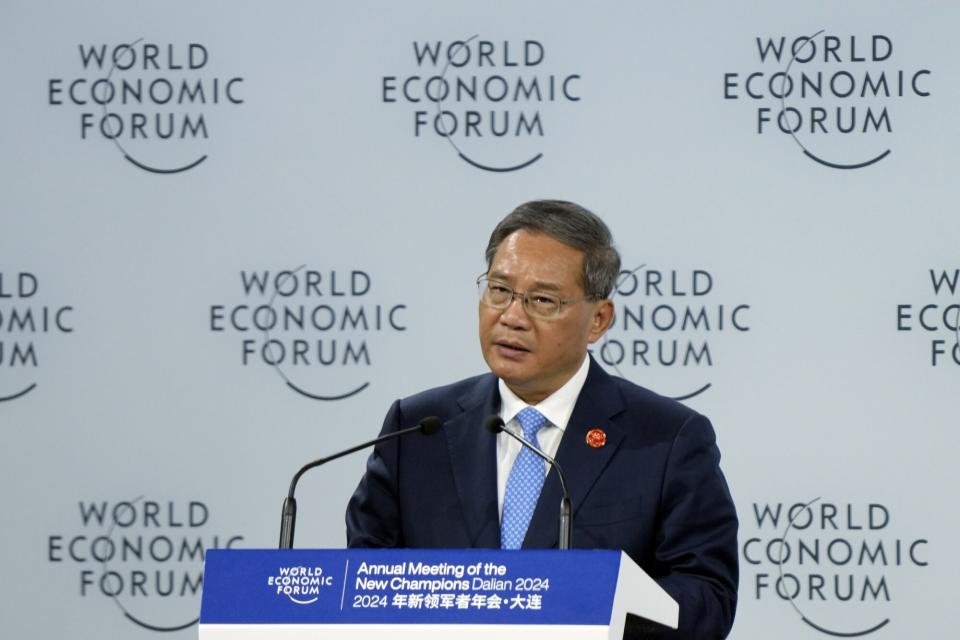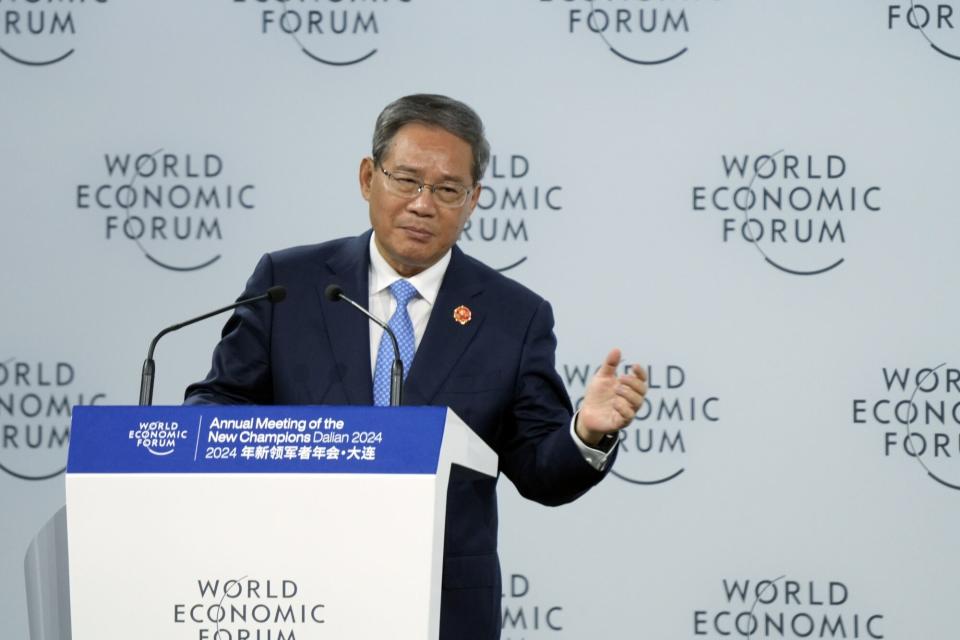China Premier Warns Decoupling Will Lead to ‘Destructive Spiral’
(Bloomberg) -- Chinese Premier Li Qiang warned of negative consequences for the world if nations part ways economically, while also countering criticism that his country’s industrial policy has led to overcapacity.
Most Read from Bloomberg
YouTuber Dr Disrespect Was Allegedly Kicked Off Twitch for Messaging Minor
Nvidia Rout Takes Breather as Traders Scour Charts for Support
Rivian Gets $5 Billion Lifeline in Joint Venture With Volkswagen
Julian Assange Leaves Court ‘Free Man,’ Ending 14-Year Drama
The “regressive actions of decoupling” would only “drag the world into a destructive spiral where the fierce competition for a larger slice ends up in a diminishing pie,” Li said at the World Economic Forum’s meeting Tuesday in the northeastern city of Dalian. “This is something we do not want to see.”
Li also defended his nation against claims it is dumping cheap goods on the world, touting its prowess in science and technology for building “a broad stage for enterprises to pursue innovation and upgrade their products.”
“Exploration should not be seen as zero-sum game,” he added.
The remarks followed Canada’s move to clamp down on imports of Chinese-made electric vehicles, aligning itself with the Biden administration on trade. The European Union also plans to increase tariffs on EVs.
Can the US and China ‘Decouple’? What Would It Mean?: QuickTake
China has suggested there may be benefits for Germany if the EU backs off on its plan, floating lowering its existing tariffs on large-engine cars in return for scrapping the planned EV levies, according to people familiar with the discussions.
Li’s comments come a day after Chinese leader Xi Jinping called on China to step up innovation because other countries dominate certain key technologies, remarks that underscore his nation’s escalating confrontation with the US over semiconductors.
Speaking at a national science conference, Xi pointed to “bottlenecks and constraints in areas such as integrated circuits, industrial machine tools, basic software, advanced materials” and more.
Li also sounded a note of optimism on China’s economy despite a prolonged property slump, weak consumer confidence and rising local government debt.
“We are confident and capable in achieving the growth target of about 5% for this year,” he said, referring to a goal he announced while delivering a government work report in March. China would adopt combination of measures, including fiscal policy and financial means, to boost its economy, he added.
The World Economic Forum meeting, known as “Summer Davos,” has attracted global business executives and world leaders including Polish President Andrzej Duda and Vietnamese Prime Minister Pham Minh Chinh, who also spoke at the gathering.
It comes before a major meeting of the ruling Communist Party in July that could unveil a series of reforms to jump start the sluggish economy. Underscoring his view that technology is key to China’s future, Xi said at a Politburo study session in the run-up to the plenum that higher education courses should be adjusted to meet the needs of new industries.
(Updates with more comments from Li and context.)
Most Read from Bloomberg Businessweek
How Jeff Yass Became One of the Most Influential Billionaires in the 2024 Election
Why BYD’s Wang Chuanfu Could Be China’s Version of Henry Ford
Independence Without Accountability: The Fed’s Great Inflation Fail
©2024 Bloomberg L.P.

 Yahoo News
Yahoo News 



